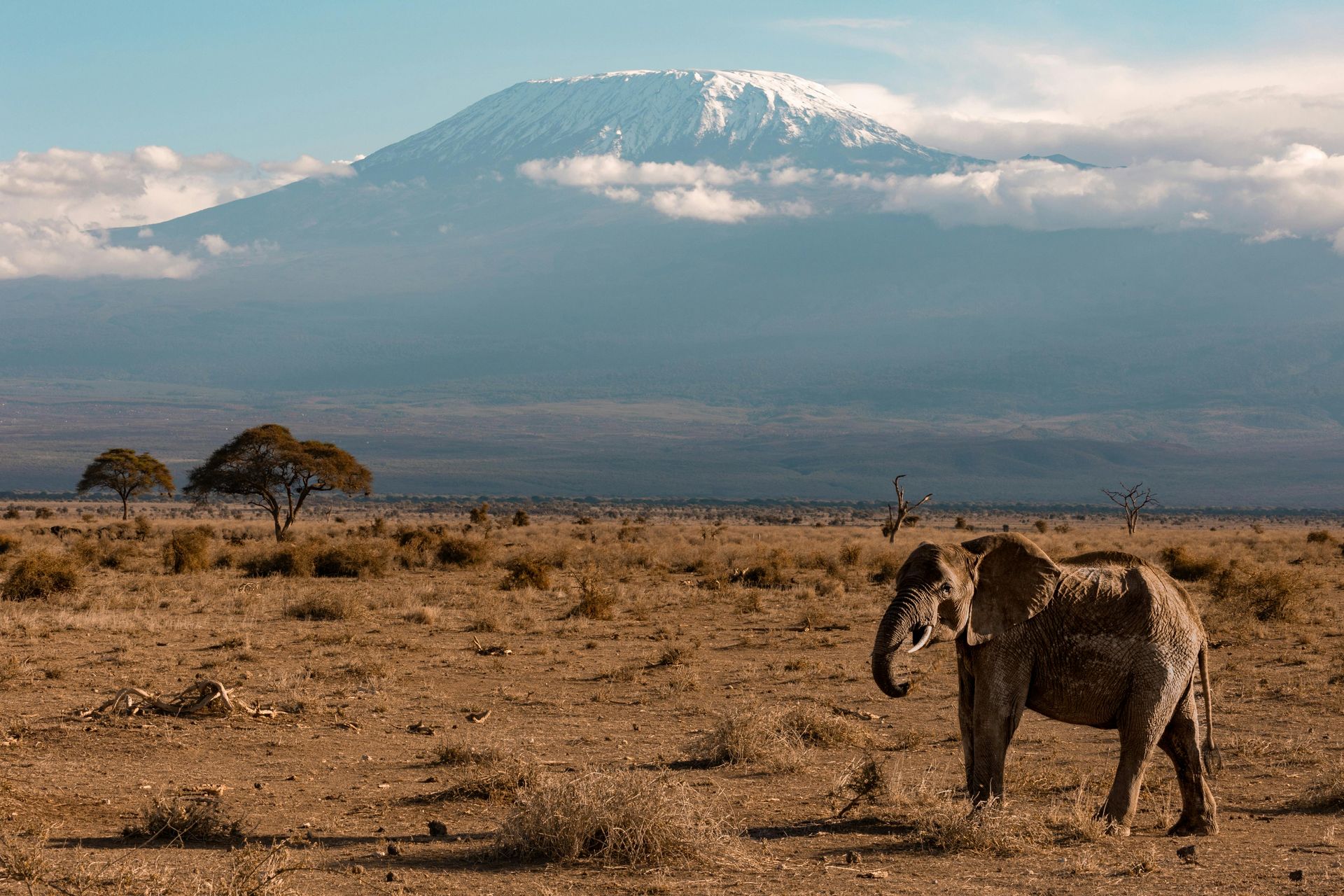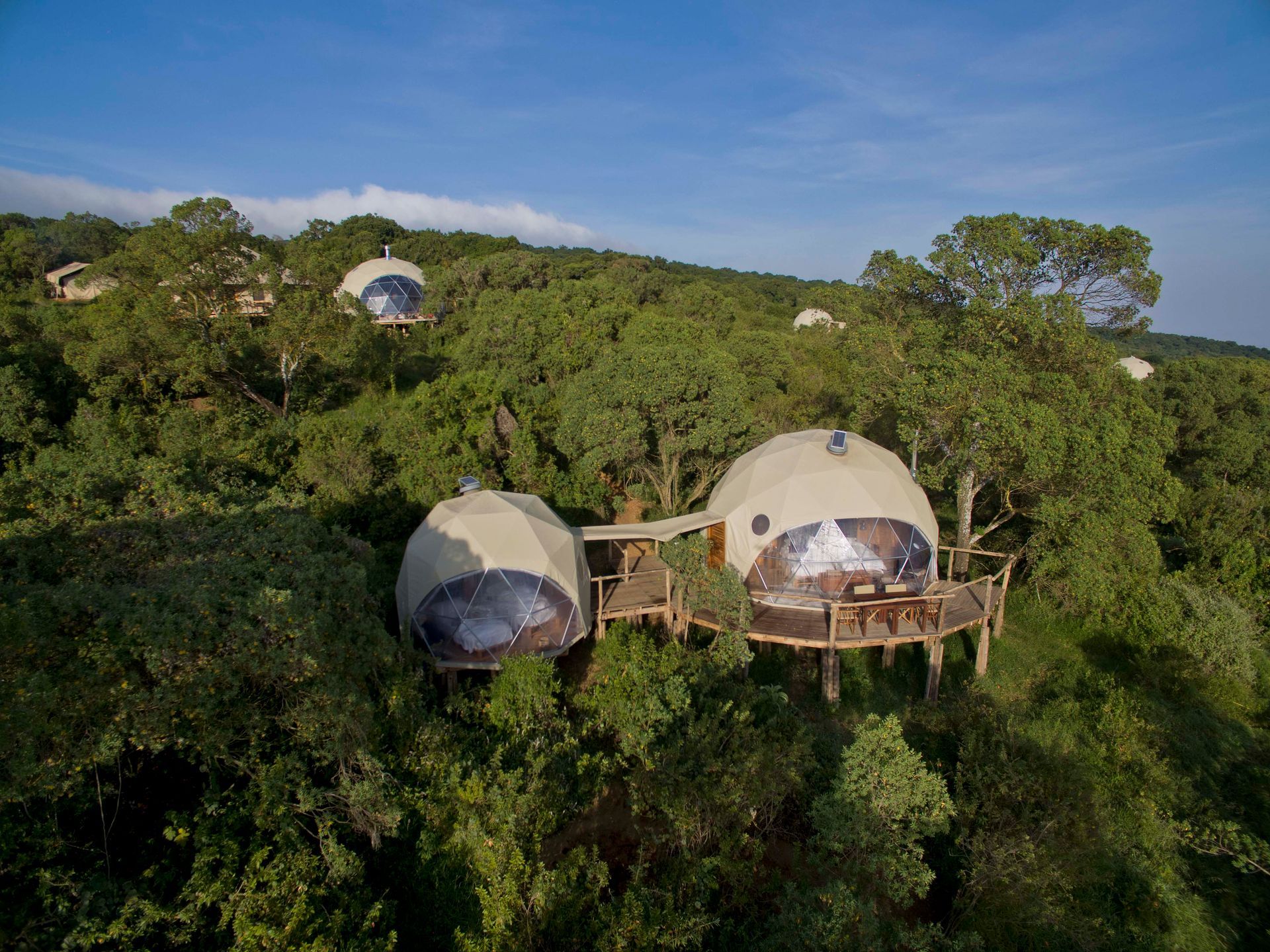Tanzania
Where Wildlife Reigns Supreme & Paradise Beckons
Your Guide to Tanzania
If you've ever watched a wildlife documentary and dreamt of being right there – witnessing the Great Migration thundering across vast plains, spotting lions surveying their kingdom from a rocky outcrop, or gazing up at the snow-capped peak of Kilimanjaro – then Tanzania is calling your name. This is East Africa at its most iconic, a land of legendary national parks like the Serengeti and the unique Ngorongoro Crater, offering arguably the most breathtaking safari experiences on the planet.
But Tanzania isn't just about the safari (though it does that spectacularly well!). It's climbing Africa's highest mountain, immersing yourself in the vibrant Swahili culture, meeting red-robed Maasai warriors, and then escaping to the idyllic spice island of Zanzibar for sun-drenched relaxation on pristine beaches. For first-timers, it's the ultimate African adventure, delivering jaw-dropping moments daily. For returners, it's a chance to explore the wilder southern and western parks, seek out specific wildlife experiences, climb higher, dive deeper, or simply soak up the infectious "pole pole" (slowly, slowly) vibe.
Kilimanjaro International Airport (JRO): Perfectly positioned for the Northern Safari Circuit (Serengeti, Ngorongoro, Tarangire, Lake Manyara) and for those attempting to summit Mount Kilimanjaro.
Julius Nyerere International Airport (DAR): Located in the bustling former capital, Dar es Salaam. It's the main hub for accessing the southern parks (like Nyerere National Park/Selous and Ruaha) and a common transit point for flights or ferries to Zanzibar.
Abeid Amani Karume International Airport (ZNZ): Situated on Unguja island, this is the direct gateway to Zanzibar's beaches, Stone Town, and surrounding islands.
Safari Vehicles (4x4s), Small Aircraft ('Bush Planes'), Zanzibar Ferries, Public Buses, Public Buses
Transport options in Tanzania
Official Spoken Languages
Airports in Tanzania
Tanzania has two official languages: Swahili (Kiswahili) and English. Swahili is the national language, spoken widely across the country and a source of national pride.
However, English is widely spoken and understood within the tourism industry – guides, lodge staff, tour operators, and in urban areas will generally communicate proficiently in English.
Weather & Climate
For the classic Northern Circuit safari and Zanzibar combination, travelers are strongly encouraged to plan their visit during the peak dry season, which runs from June to October, or to consider the exciting calving season that occurs between January and February. These time frames not only offer the best wildlife viewing opportunities, as animals congregate around water sources during the dry months, but they also showcase the breathtaking landscapes and vibrant ecosystems of the region. Additionally, experiencing the calving season provides a unique chance to witness newborn animals and their interactions within various herds, making for an unforgettable adventure in the heart of Tanzania's natural wonders.
Must-Do Experiences in Tanzania
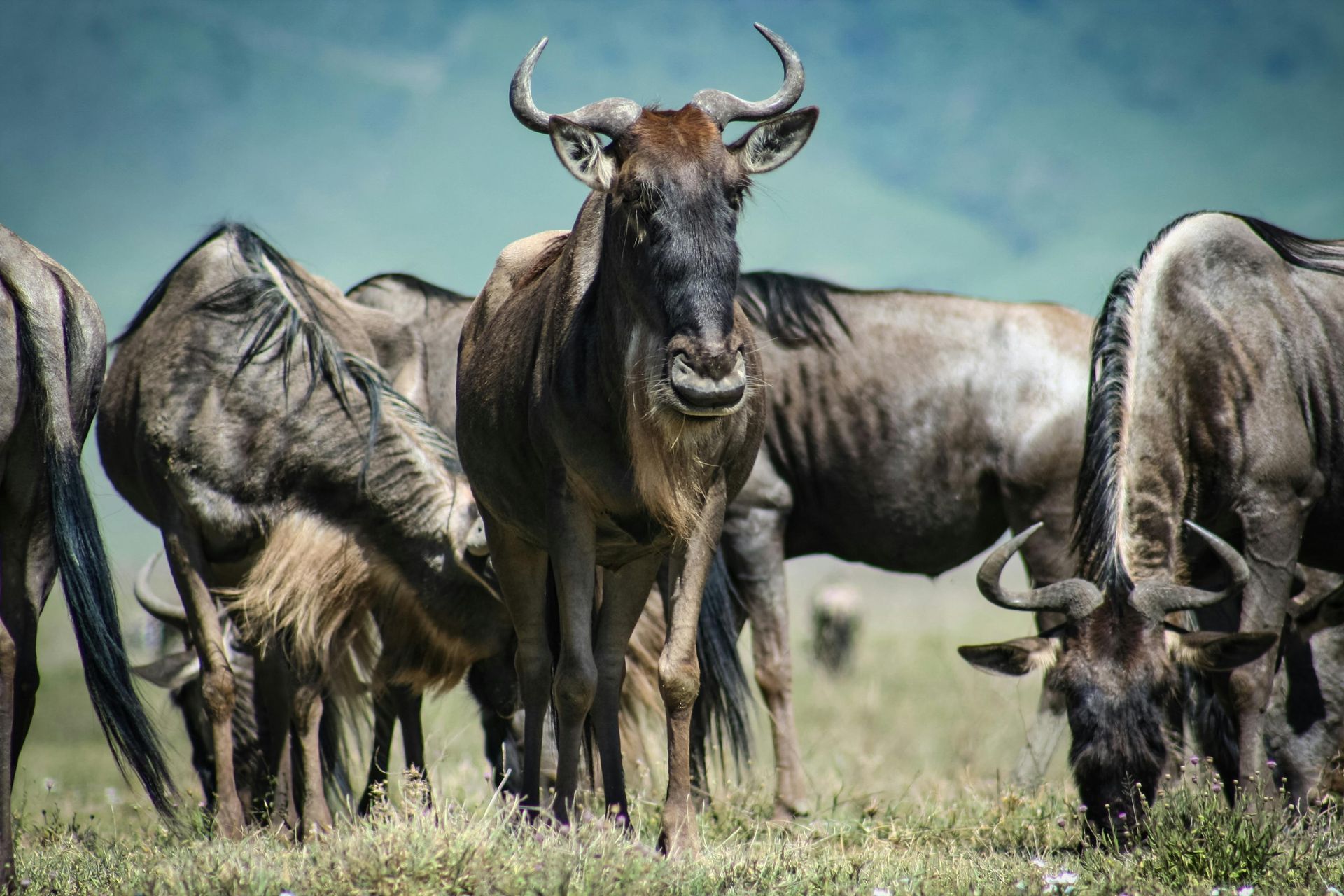
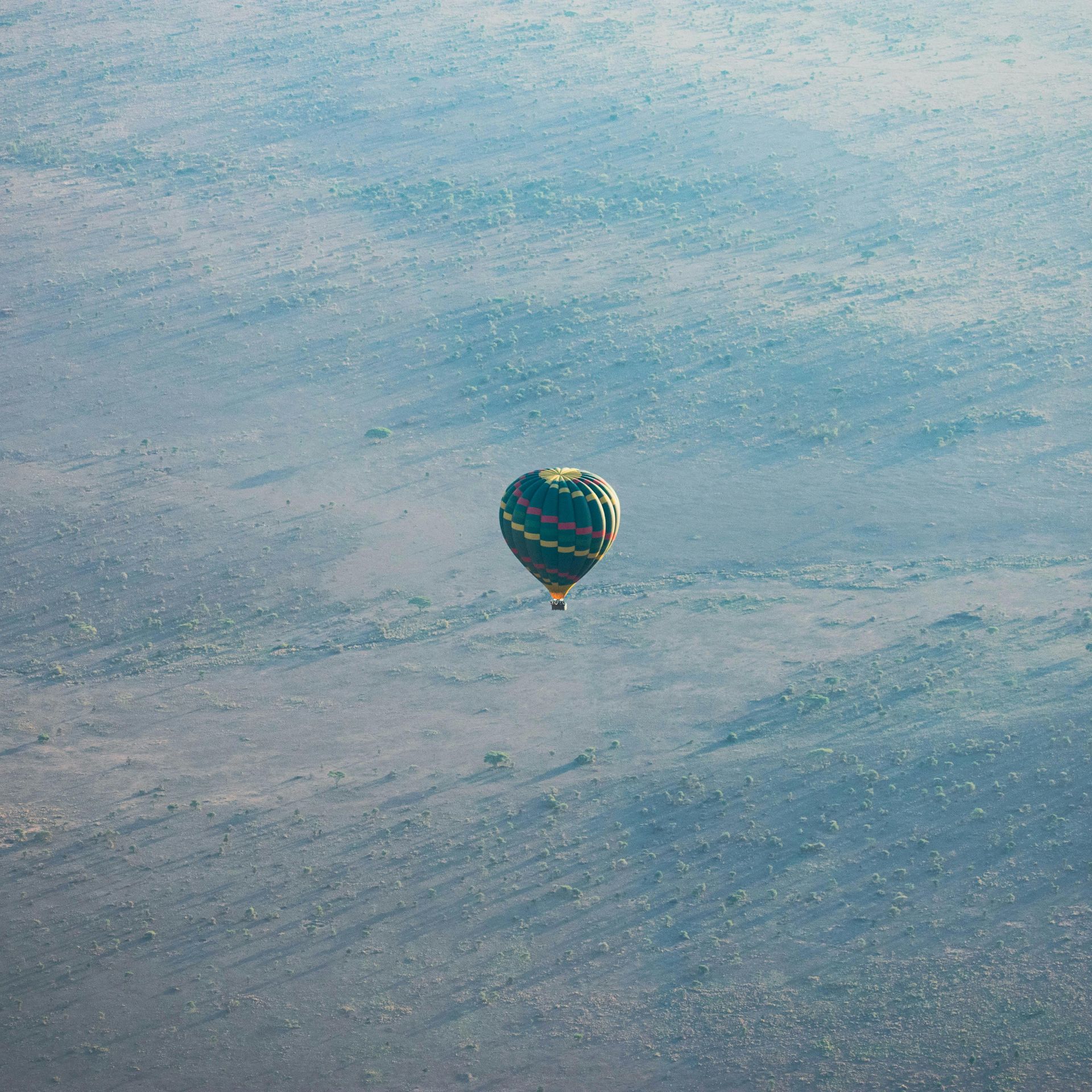
Witness the Majesty of the Serengeti
This is the safari destination dreams are made of. Endless savanna plains stretching to the horizon, teeming with wildlife. It's famed for the Great Migration, where millions of wildebeest and zebra follow the rains (check timings for location!). Game drives here offer unparalleled opportunities to see lions, cheetahs, elephants, giraffes, and so much more. First-timers absolutely need this on their list.
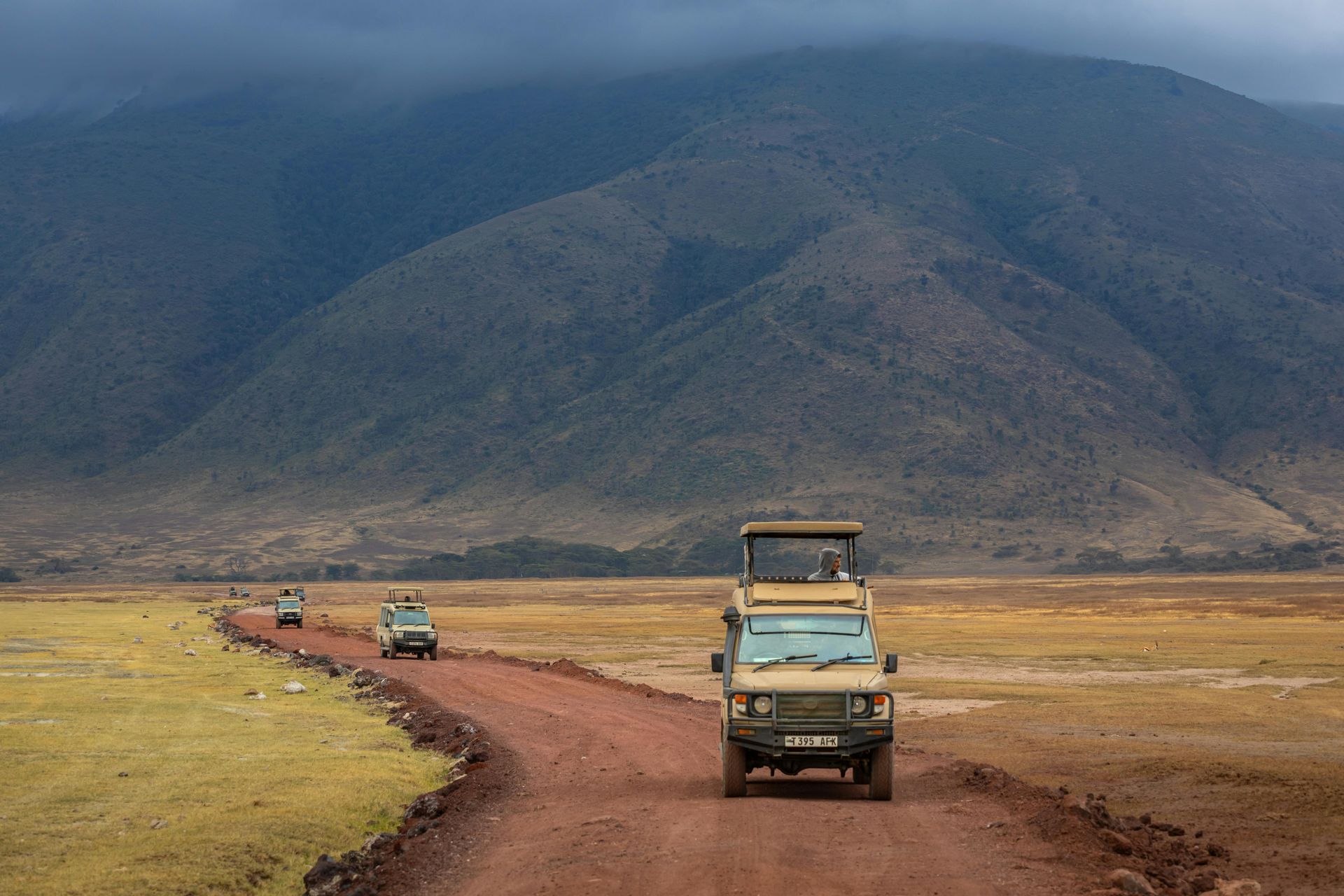
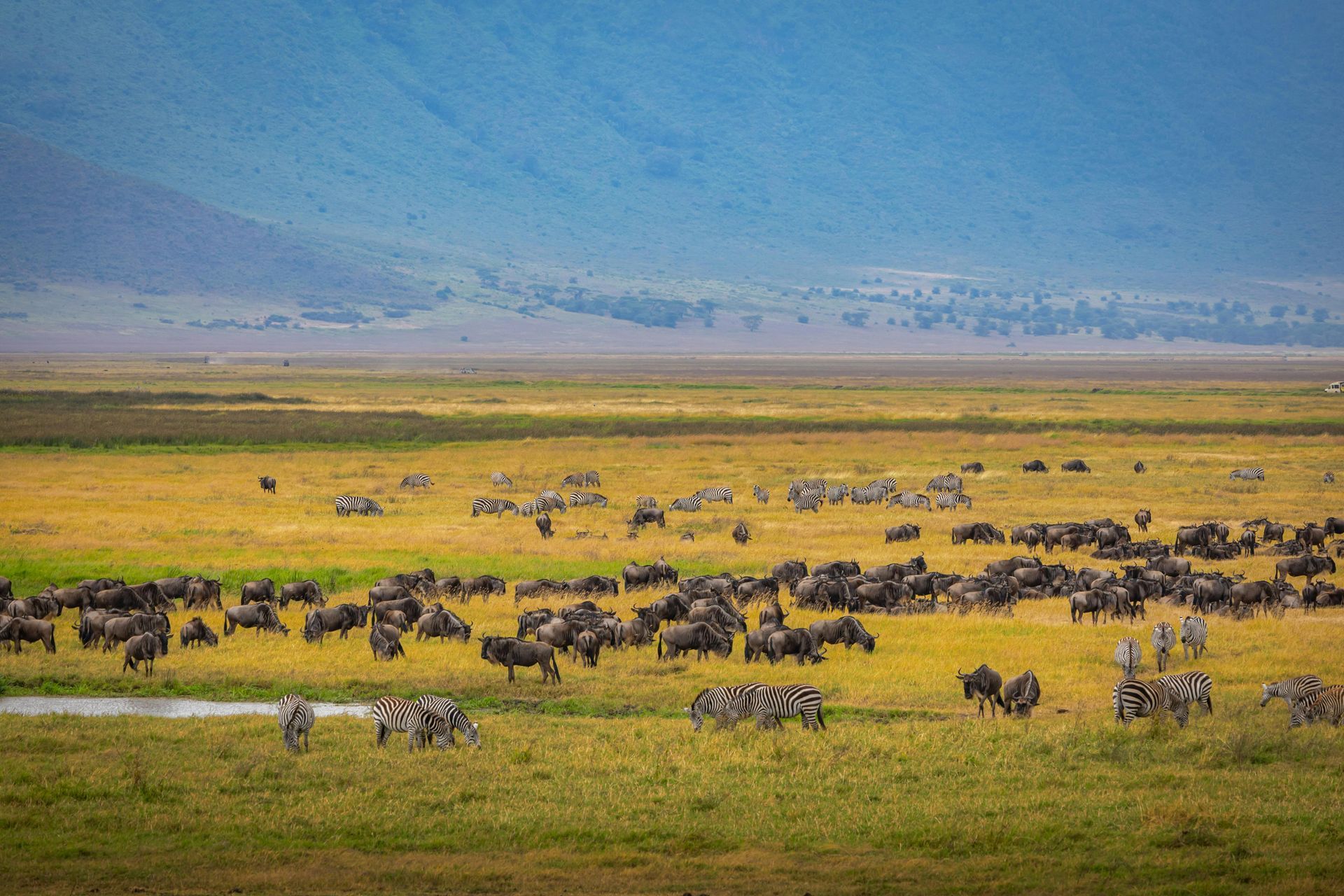
Descend into the Ngorongoro Crater
Imagine a massive volcanic caldera, acting like a natural enclosure for an astonishing concentration of wildlife – that's the Ngorongoro Crater. A UNESCO World Heritage site, it offers perhaps the best chance of spotting the Big Five (including the elusive black rhino) in a single game drive. The views from the crater rim are stunning. A must-do for first-timers, usually combined with the Serengeti.
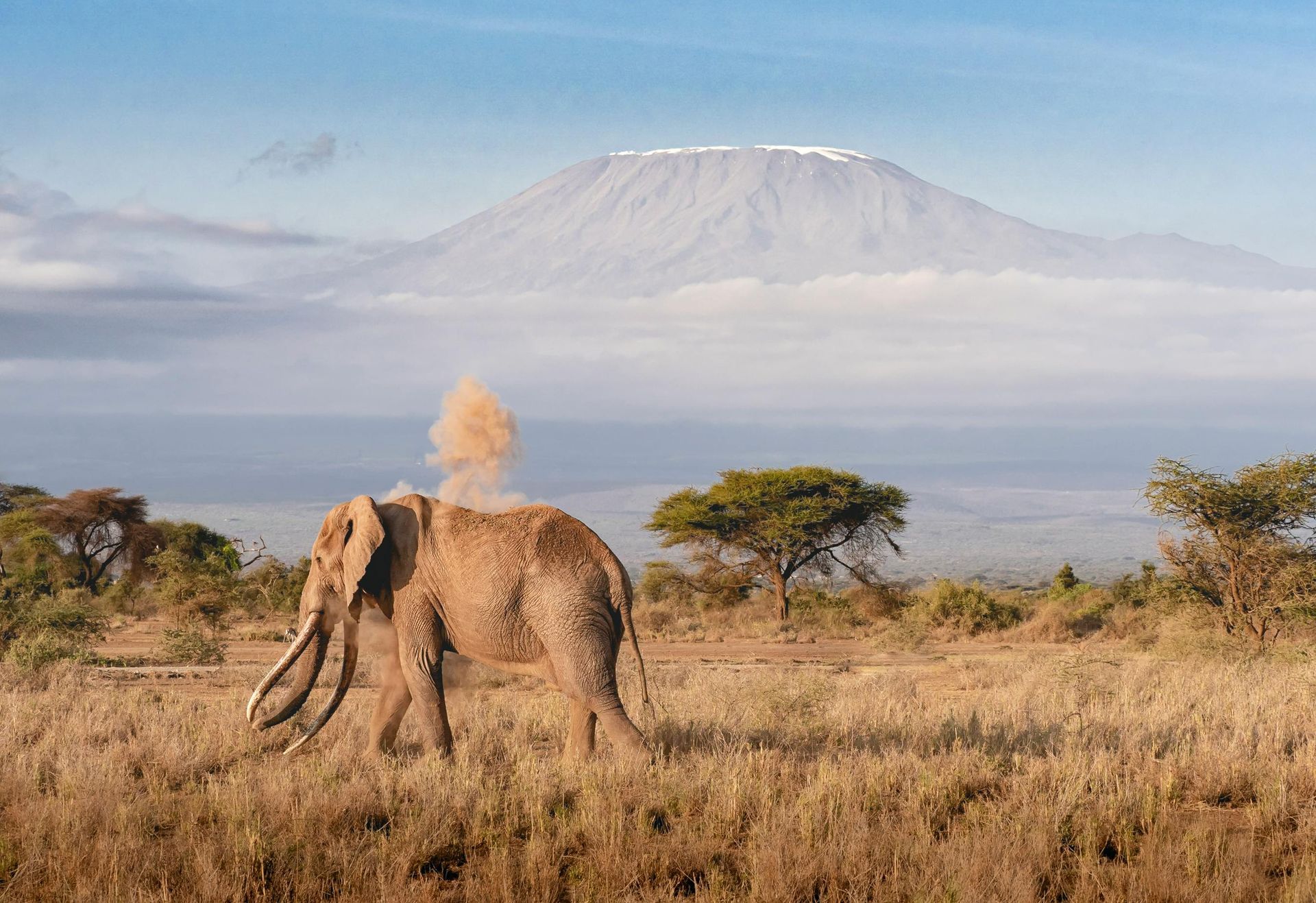
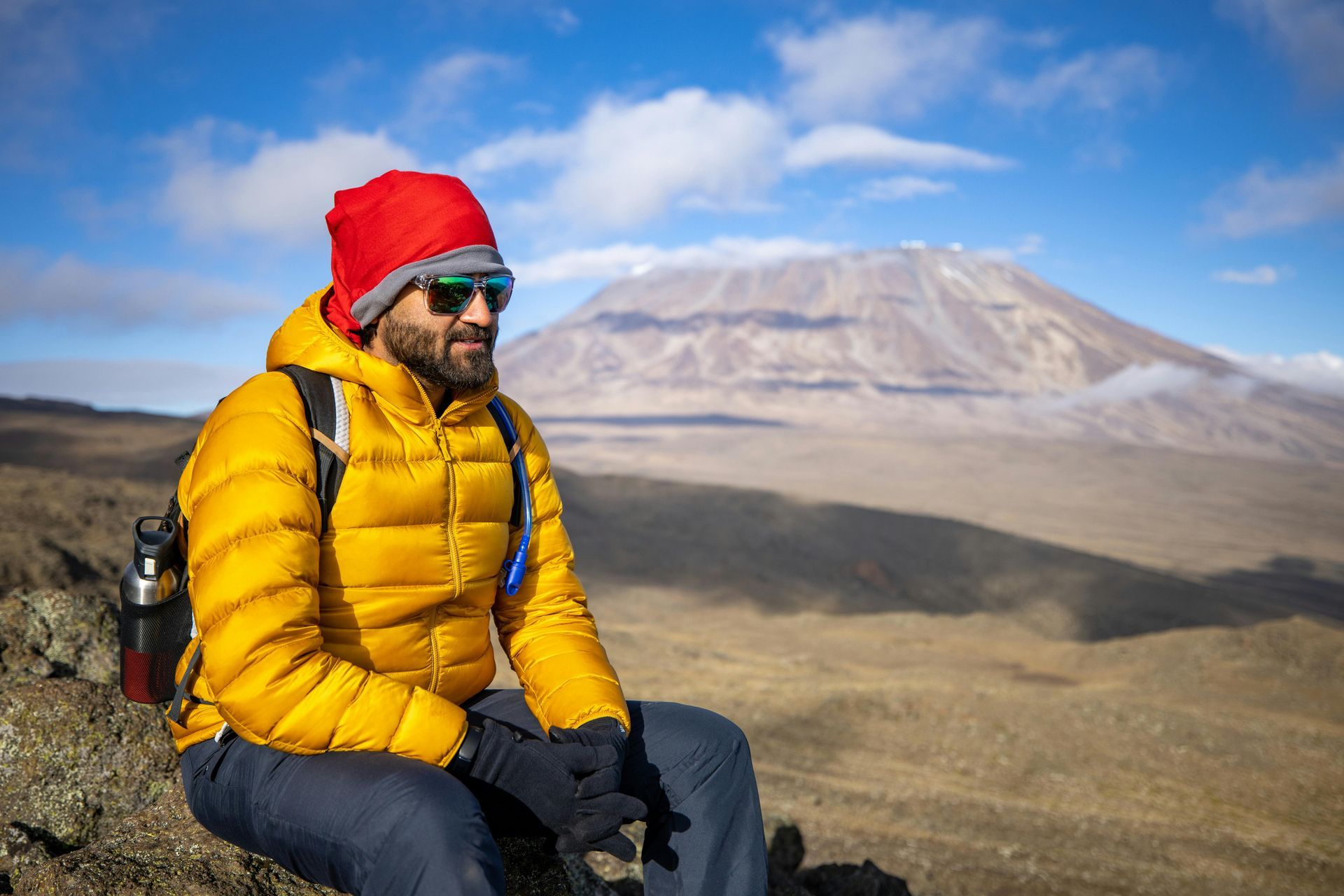
Climb Mount Kilimanjaro
Africa's highest peak, "Kili," looms large over the landscape. Climbing this dormant volcano is a serious trek (typically 6-9 days via various routes) requiring good fitness, preparation, and acclimatisation – a true bucket-list challenge for adventurous souls. For many first-timers, simply seeing its iconic snow-dusted cone from below is enough of a thrill. Explore the beautiful hiking trails around its base.
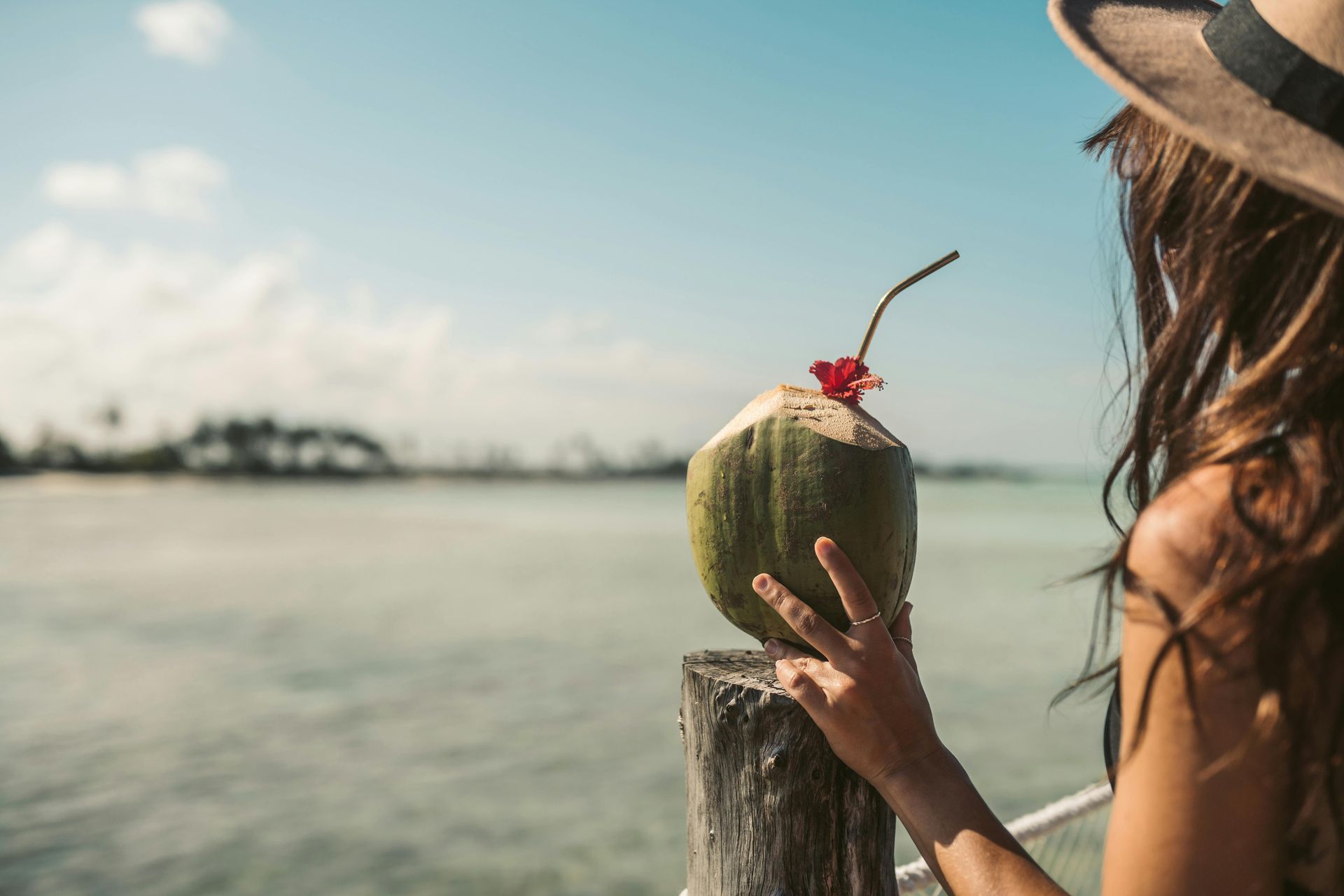
Unwind on Zanzibar - Unguja Island
After the dust and adventure of the mainland, the Spice Island offers the perfect tropical counterpoint. Lose yourself in the labyrinthine alleys of historic Stone Town (a UNESCO site), breathing in the scents of cloves and cardamom. Then head to the coast for stunning white-sand beaches like Nungwi, Kendwa, or Paje, where turquoise waters invite swimming, snorkelling, diving, or simply lazing in a hammock.
Tips for First-Time Visitors
UK citizens need a visa for Tanzania. Getting an e-visa online before you travel is strongly recommended to save time on arrival. Crucially, consult your GP or a travel clinic at least 6-8 weeks before your trip regarding necessary vaccinations (Yellow Fever status is important) and malaria prevention. Anti-malarials are essential for almost all tourist areas, including Zanzibar. Pack plenty of high-DEET insect repellent.
Sort Your Paperwork & Prickles Early
This Swahili phrase isn't just words; it's a way of life. Things often happen at a more relaxed pace than back home. Journeys can be long, plans might shift slightly. Trying to rush will only lead to frustration. Take a deep breath, adjust your expectations, and embrace the Tanzanian rhythm. Enjoy the scenery, chat with your guide, soak it all in – patience is a virtue here!
Master the Art of "Pole Pole" (Slowly, Slowly)
Don't underestimate the difference a good pair of binoculars makes! Your guide will have incredible eyesight, but having your own pair (recommend 8x42 or 10x42 magnification) lets you spot that leopard lounging in a distant tree or admire the intricate plumage of a bird. It elevates the experience from just seeing animals to truly observing them. Worth the investment for everyone in your group!
Binoculars: Your Safari Superpower
While the Tanzanian Shilling (TZS) is the official currency, US Dollars are widely used and often preferred for tourist services like safari costs, park fees, lodge bills, and visa fees. Bring clean, relatively new USD notes (post-2009 usually best). Use TZS for smaller local purchases, markets, and snacks. Tipping is customary and greatly appreciated for good service – budget for tips for your safari driver/guide (crucial!), lodge staff, Kili porters, etc., typically paid in USD at the end of their service.
Dollars, Shillings & Sensible Tipping
Tanzania: The Call of the Wild & the Coast
Tanzania delivers experiences that resonate long after you've returned home. The sheer scale of the wildlife, the dramatic beauty of the landscapes – from crater highlands to endless plains and tropical shores – is simply unforgettable. It’s a land of adventure, discovery, and heartwarming hospitality ("Karibu Tanzania!").
While a trip requires careful planning, especially regarding health and logistics, the payoff is immense. Whether you're fulfilling a lifelong dream on your first safari, challenging yourself on Kilimanjaro, or unwinding on Zanzibar's perfect sands, Tanzania promises an adventure that will capture your heart and fill your photo albums. Get ready for the trip of a lifetime!

